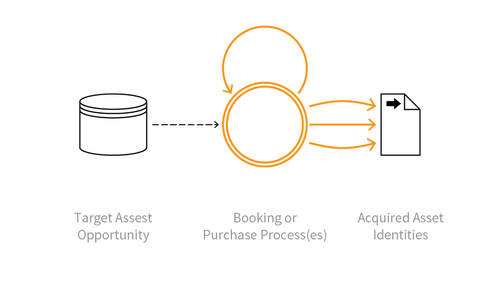OAT-005 Scalping
Scalping is an automated threat. The OWASP Automated Threat Handbook - Web Applications (pdf, print), an output of the OWASP Automated Threats to Web Applications Project, provides a fuller guide to each threat, detection methods and countermeasures. The threat identification chart helps to correctly identify the automated threat.
Definition
OWASP Automated Threat (OAT) Identity Number
OAT-005
Threat Event Name
Scalping
Summary Defining Characteristics
Obtain limited-availability and/or preferred goods/services by unfair methods.
Indicative Diagram

Description
Acquisition of goods or services using the application in a manner that a normal user would be unable to undertake manually.
Although Scalping may include monitoring awaiting availability of the goods or services, and then rapid action to beat normal users to obtain these, Scalping is not a “last minute” action like OAT-013 Sniping, nor just related to automation on behalf of the user such as in OAT-006 Expediting. This is because Scalping includes the additional concept of limited availability of sought-after or exclusive goods or services, and is most well known in the ticketing business where the tickets acquired are then resold later at a profit by the scalpers/touts. This can also lead to a type of user denial of service, since the goods or services become unavailable rapidly.
Other Names and Examples
Bulk purchase; Grinch bot; Purchase automaton/bot; Queue jumping; Restaurant table/hotel room reservation speed-booking; Sale stampede; Secondary ticketing; Slot-booking bot; Sneaker bot; Ticket resale; Ticket scalping; Ticket touting; Vaccine bot
See Also
Cross-References
CAPEC Category / Attack Pattern IDs
- 210 Abuse Existing Functionality
CWE Base / Class / Variant IDs
- 799 Improper Control of Interaction Frequency
- 837 Improper Enforcement of a Single, Unique Action
WASC Threat IDs
- 21 Insufficient Anti-Automation
- 42 Abuse of Functionality
OWASP Attack Category / Attack IDs
- Abuse of Functionality
Return to OWASP Automated Threats to Web Applications Project.